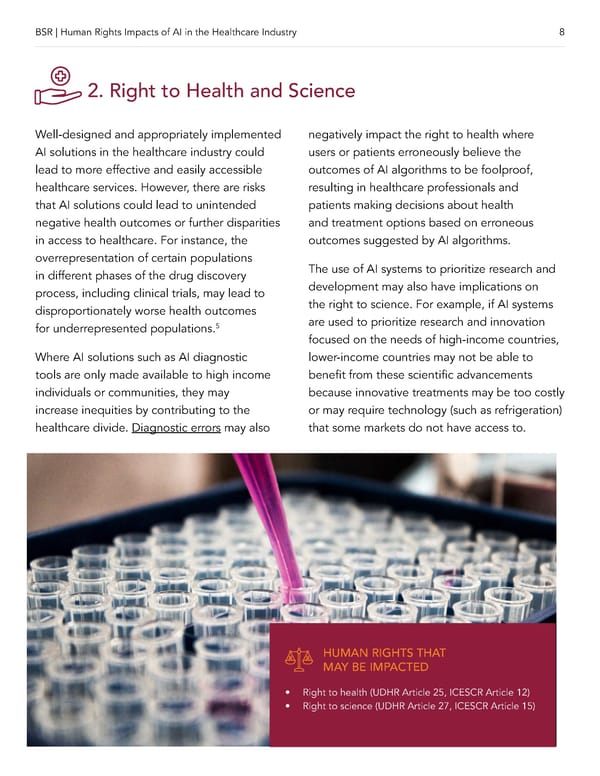BSR | Human Rights Impacts of AI in the Healthcare Industry 8 2. Right to Health and Science Well-designed and appropriately implemented negatively impact the right to health where AI solutions in the healthcare industry could users or patients erroneously believe the lead to more effective and easily accessible outcomes of AI algorithms to be foolproof, healthcare services. However, there are risks resulting in healthcare professionals and that AI solutions could lead to unintended patients making decisions about health negative health outcomes or further disparities and treatment options based on erroneous in access to healthcare. For instance, the outcomes suggested by AI algorithms. overrepresentation of certain populations in different phases of the drug discovery The use of AI systems to prioritize research and process, including clinical trials, may lead to development may also have implications on disproportionately worse health outcomes the right to science. For example, if AI systems 5 are used to prioritize research and innovation for underrepresented populations. focused on the needs of high-income countries, Where AI solutions such as AI diagnostic lower-income countries may not be able to tools are only made available to high income bene昀椀t from these scienti昀椀c advancements individuals or communities, they may because innovative treatments may be too costly increase inequities by contributing to the or may require technology (such as refrigeration) healthcare divide. Diagnostic errors may also that some markets do not have access to. HUMAN RIGHTS THAT MAY BE IMPACTED • Right to health (UDHR Article 25, ICESCR Article 12) • Right to science (UDHR Article 27, ICESCR Article 15)
 AI and Human Rights in Healthcare Page 9 Page 11
AI and Human Rights in Healthcare Page 9 Page 11